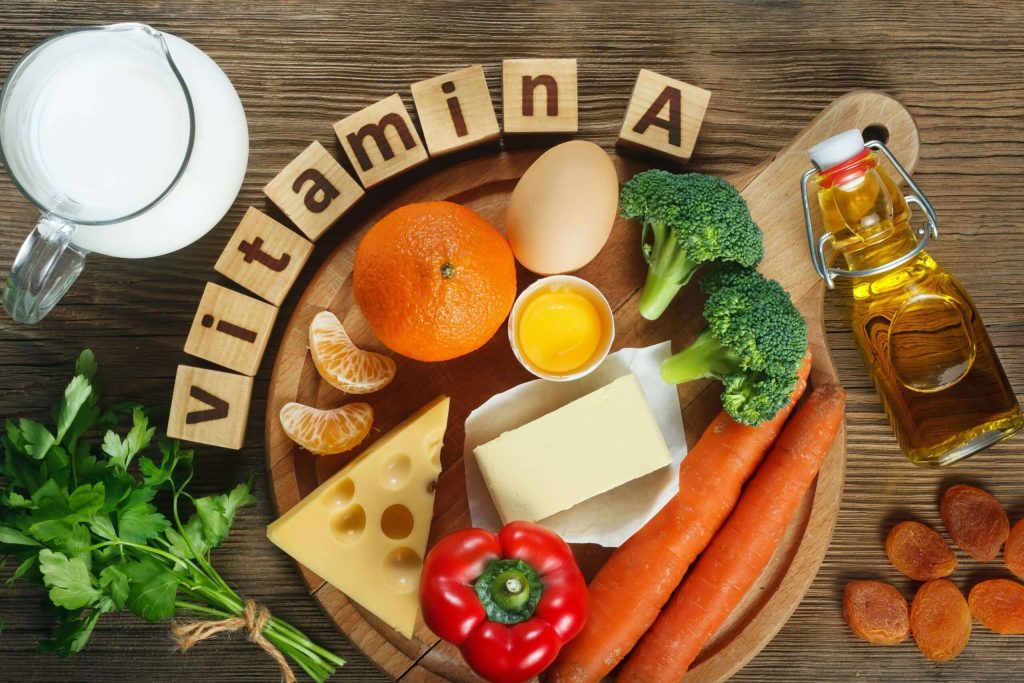Certain nutrients play an integral role in immunity, critically supporting the healthy functioning of different types of immune cells, promoting antibody formation, and helping to reduce oxidative damage and inflammation. Some key nutrients to support immune health include:
- Vitamin A. Vitamin A plays a role in immune health and is found within a range of fruits and vegetables, especially orange-coloured varieties (think carrots, pumpkin, sweet potato, apricots, rockmelon, papaya and mango). It is also found in liver, eggs, oily fish, and cheese.
- Vitamin C. Vitamin C is a potent antioxidant and supports various cellular functions of the immune system. Deficiency, whilst uncommon in developed countries, has been associated with impaired immune function and increased susceptibility to infection. Good food sources inlude citrus fruits, kiwi, strawberries, tomatoes, capsicum, spinach and parsley.
- Vitamin D. Vitamin D has been shown to help control infection and reduce inflammation. Responsible sun exposure is the easiest way to boost vitamin D levels; find the Australia Cancer Council’s SunSmart guidelines here. Vitamin D can also be found in mushrooms (especially following sunlight exposure for an hour prior to use), egg yolk, oily fish, and fortified dairy products.
- Vitamin E. Vitamin E helps to maintain a healthy immune system and reduce oxidative damage. Wheat germ, peanuts, almonds, hazelnuts, pine nuts and sunflower seeds are all good sources of vitamin E.
- Iron. Iron is an essential micronutrient that plays a key role in immune health. Deficiency is common, and can contribute to recurrent bouts of illness and feelings of fatigue and lethargy. Although red meats like beef and lamb are good sources of iron, it’s also found in eggs, legumes, firm tofu, nuts and seeds, dried apricots and dark green leafy vegetables, to name just a few! Find our tips to boost iron intake and absorption here.
- Selenium. Selenium is a nutrient and antioxidant that helps to reduce oxidative stress, which decreases inflammation and enhances immune health. Food sources include seafood, offal, brazil nuts (1xnut provides 100% daily requirements), lean red meat and chicken, cottage cheese and eggs.
- Zinc. Zinc is an important micronutrient that plays a role in the growth and normal functioning of immune cells. Even a mild-moderate zinc deficiency can increase risk of infection. Good dietary sources include shellfish (especially oysters), poultry, lean meat, eggs, wholegrains, yoghurt and pepitas.
What about supplements?
For some of us, it’s difficult to obtain all immune-supporting nutrients in appropriate amounts. Supplementation can be helpful in some cases to rapidly address deficiencies or fill any dietary gaps. Majority of people, however, can achieve adequate levels through a balanced diet. Reach out to an Accredited Practising Dietitian for support if you’re concerned about your intake.
Written by Caitlin Branch, Student Nutritionist, and Amanda Smith, Accredited Practising Dietitian.

